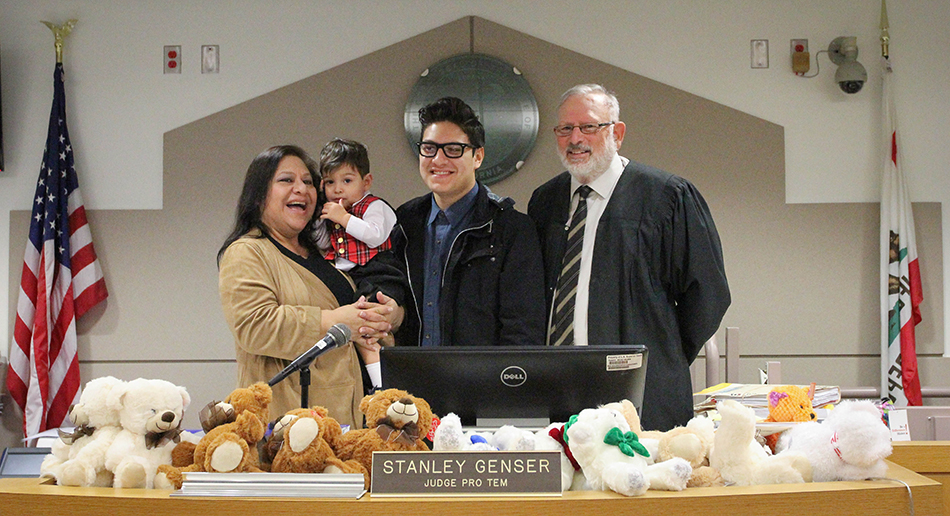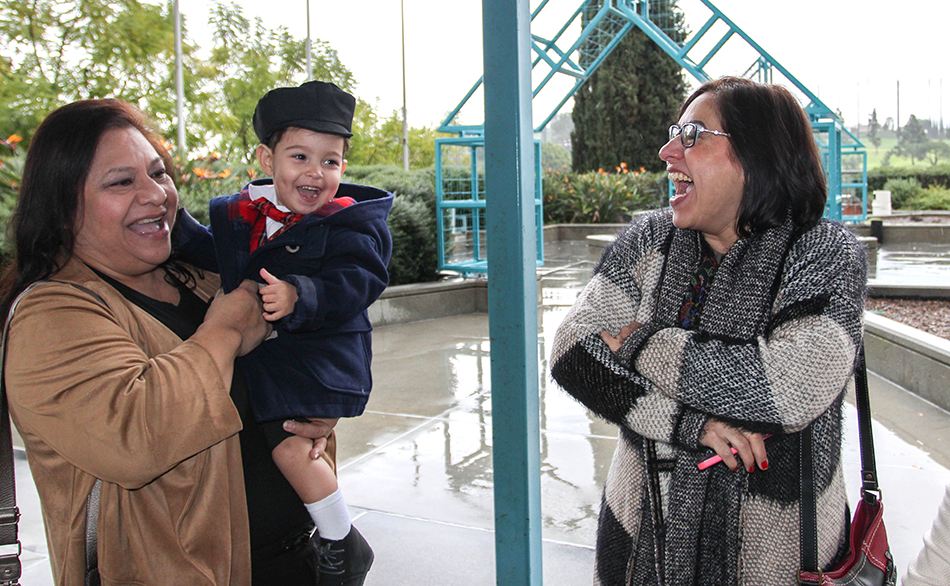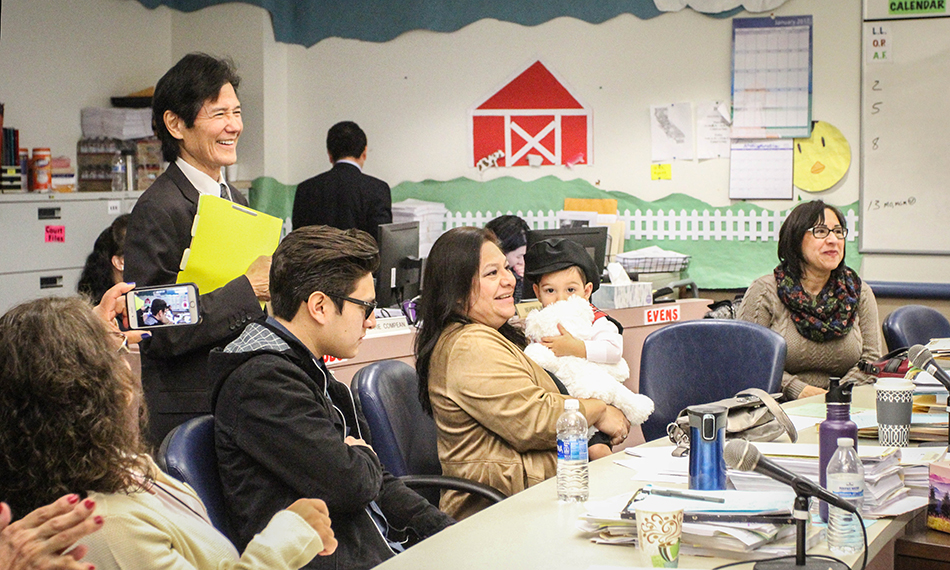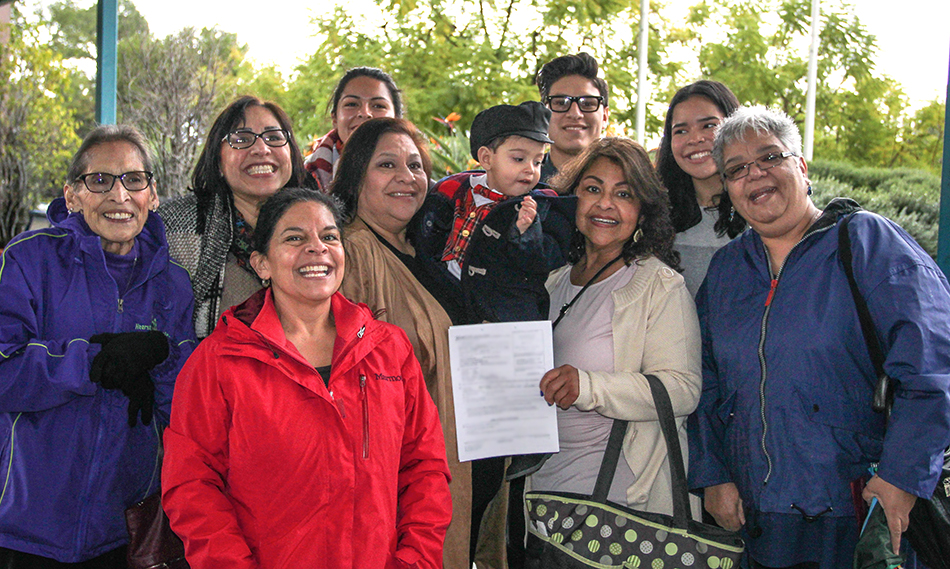

There are many memorable experiences that occur for social workers over their time serving in foster care. One such occurrence that comes up is when a biological parent is distressed with the removal of their child who is placed into the foster care system. There are many reasons this takes place including substance abuse, incarceration, mental illness or neglect of the child. Whatever the reason for the child’s removal, it is for their safety and in their best interest. This can be devastating, not only for the child, but also for the parent and biological family.
The purpose of foster care is to provide a temporary safe place until a permanent solution can be achieved through reunification with family, adoption, or emancipation. It is the hope and responsibility of foster care agencies and foster parents to ensure every opportunity for reunification is attempted. At Trinity Youth Services, we deeply hope and root for biological families to change the circumstances necessary to reunify children with their family. We look to foster parents to help by getting youth to and from visitation meetings with biological families, attending family meetings, and utilizing mental health and counseling services.
It is very important that all parties maintain respect and compassion for one another for the sake of the child. It is also important to understand what the birth parent is going through, listen to their feelings and remember they are deserving of respect and a chance to be reunited with their child if it is safe to do so. Until then, we make certain that biological parents know we do everything to ensure the safety and well-being of their child.
If reunification cannot be achieved, their parental rights will be terminated and the child will be available for adoption. Our goal is to provide the child with the best permanent solution as soon as possible so they may have a chance to heal from the trauma experienced in their life and find the normalcy they long for.
This process isn’t always easy and our social workers certainly have had to form a thick skin to effectively and compassionately communicate with upset birth parents, but this work is rewarding. We often hear from families long after a child has been in our care regarding their progress and how, ultimately, the experience changed their life for the better. Our reward is knowing a child is safe and leading a stable life. Years later, we get phone calls and letters of gratitude about our genuine concern for everyone involved. It’s stories like these that make it all worthwhile.

Jenelle Phillips, Director of Development
Jenelle’s role is to identify and access resources for youth in our care. She is also responsible for maintaining a distinctive look and voice for Trinity through our online presence, media and community outreach. Before joining the Trinity team in 2016, Jenelle worked in the newspaper/magazine industry for nearly a decade as an award-winning graphic designer, photographer, writer and editor. Jenelle earned a bachelor’s degree in communications at California State University Fullerton. Jenelle is very involved in the community and is active in her church.


Children in foster care, who have suffered trauma, require safe, nurturing relationships with resource parents so they can begin to heal. A trauma is any experience that is deeply distressing or disturbing. Traumatic events can take many forms, and the way children and youth experience it can vary as well. With the help of caring and patient resource parents, children who have been traumatized can begin to cope, heal and thrive.
Children in foster care have suffered some form of abuse or neglect. It is important to gather as much history and information about the child from the placing agency or birth parent as possible. Understanding where the child comes from will help in making parenting decisions. Trying to imagine what the child has gone through and how they may have felt, will allow you to understand why they respond the way they do. Any experience, good or bad, will have an impact on a child’s behavior and how they will adjust to their new resource family. Each child is different and will have their own reaction to abuse and neglect, even if they are part of the same family. Understanding this and not taking behavior personally will make parenting a little easier.
Identifying Signs of Abuse and Neglect
At times it is difficult to obtain background information about the child, so it’s important as a resource parent to learn to identify signs of abuse and neglect. Below are a few signs of which to be aware. The list is not comprehensive and not all children that have these signs have been abused.
 Physical Abuse
Physical Abuse
-Unexplained bruises, welts or swelling
-Broken bones, burns or bites
-A child cowers when approached by an adult
-Frequent physical complaints, such as stomach aches or headaches
Neglect
-Lacks needed medical or dental care
-Appears underweight
-Eats rapidly or hoards food
Sexual Abuse
-Nightmares or bedwetting
-Knowledge or interest in sexual behaviors that are not age appropriate
-Attaches very quickly to strangers
Emotional Abuse
-Fearful of parent or says they hate their parent
-Talks badly about themselves (“I’m worthless”)
-Shows either inappropriately mature behavior (parenting other children) or inappropriately childish behavior (rocking or head banging)
Learning How to Cope
For resource parents, it’s important to keep the social worker aware of behaviors and signs the child is exhibiting. This will help both the resource parent and social worker develop a treatment plan to better serve the needs of the child and help them start the healing process.
Teaching children how to cope with their past abuse will begin to build their resilience and allow them to flourish. The following are some things you can do to help your child’s ability to cope.
Start to Bond
Teach your child that you and your family will be there for them, no matter the situation. Talk to them about building trusting and respectful relationships. Do things as a family. Ask them about their likes and dislikes and incorporate things like favorite foods to your new family’s routine.
Allow Children to Express Their Feelings
Teach your children how to identify their feelings and praise them for expressing them. Show them that it’s okay to express being hurt, angry or sad, without having to act out. Encourage your children to talk about their biological families as well. It will put them at ease and not feel as if they have to choose between the two of you.
Be Consistent
If you say you are going to do something, do it. Show them that they can count on you. Treat everyone in the family the same. This will help to build trust.
Be Patient
Each child is different and will react differently to trauma. Don’t rush a child, they may not be ready to talk about their past. Also, be patient when children act out—it’s not about you, it’s about their trauma.
Be Supportive
Express love, caring and support to your children both verbally and physically. Give them praise, high-fives, hugs or little notes. Let them know that you are there for them.
Behavior
 The healing process takes time and is different for every child. Children in foster care need someone to help them understand the difference between acceptable and unacceptable behavior. We must teach them that behaviors have consequences and to take responsibility for their actions. Some techniques that will assist this process include:
The healing process takes time and is different for every child. Children in foster care need someone to help them understand the difference between acceptable and unacceptable behavior. We must teach them that behaviors have consequences and to take responsibility for their actions. Some techniques that will assist this process include:
Role Modeling
Show your child how to interact with others. Show them how to express emotions and how to deal with frustration. Stay calm. Be a model for the type of behavior you want to see them display.
Encouragement
Catch your children doing something right, and praise them. When they make a mistake correct them.
Rules
Create a routine. Have rules for bedtimes, play time, meals and homework time. Be consistent with routines and rules. When children know what is going to happen next, they are less anxious.
 Support
Support
Resource parenting is a challenging task, but you are not alone. You are part of a child and family team that are all working together for that child to succeed. Trinity Youth Services offers 24/7 support 365 days a year. For more information, contact us at (800) 964-9811 or info@trinityys.org.
 Jackie Jakob, Foster Care and Adoptions Director
Jackie Jakob, Foster Care and Adoptions Director
Having over 20 years’ experience, Jackie currently oversees Trinity Youth Services’s operations of foster care and adoptions programs throughout Southern California and in Houston, Texas. She received a bachelor’s degree in law and society from University of California Santa Barbara, a master’s degree in social work from California State University Long Beach and recently became a Licensed Clinical Social Worker. Jackie enjoys spending time with her husband and two children attending various baseball, softball and judo meets. She is on the parent board for a judo dojo and is one of the troop leaders for her daughter’s Girl Scout troop. Additionally, she really enjoys running half marathons and aims to run 4 to 5 races each year.
Tel: 909.825.5588 | Email: info@trinityys.org


 A Joyous Occasion
A Joyous Occasion
“This is a joyous occasion,” a Trinity Youth Services adoption social worker said. After being in foster care for almost all of his young life, a 22-month-old baby boy was adopted by the Spivey family with the aid of Trinity Youth Services.
The boy was placed into foster care just days after birth. Ms. Spivey took him into her home as soon as the hospital discharged him. He was only 3 days old and Ms. Spivey immediately felt there was a place in her family for him.
“When I met him, I knew,” she said. “He’s always been such a good little boy.”
Ms. Spivey also has an 18-year-old son and is currently fostering a baby girl, who is expected to be reunited with her birth family soon. Some have told Ms. Spivey she is crazy for once again taking on the role of new mother now that her older son is grown, but her response is that she is “beyond excited.” She said, this baby boy “has always been my son and I’m here to make it legal.”
 Together
Together
During the adoption finalization, Ms. Spivey was surrounded by the support of representatives from Trinity Youth Services and the Los Angeles County Department of Children and Family Services (DCFS), as well as her lawyer and members of her immediate and extended family. The entire Spivey family was overjoyed to welcome the child into their lives, so much so, that some relatives flew to Los Angeles to surprise Ms. Spivey by being there in person.
“This was a joint effort getting him here today,” Ms. Spivey said as she thanked everyone for being there.
 Doing Something Right
Doing Something Right
The family and supporters gathered in the courtroom where the Spivey family’s adoption lawyer made the formal appeal for the adoption and the judge formally granted it. As the room cheered, the baby boy threw his little hat into the air, smiling and giggling. The judge laughed and commented that Ms. Spivey “must be doing something right.”
If you are moved to “do something right” for a child in need of a “Forever Family” and are interested in becoming a foster or adoptive parent like Ms. Spivey, contact Trinity Youth Services today to begin your journey: 888.346.9645 or info@trinityys.org.
*Names have been omitted to protect our clients’ privacy.

Congratulations to the Spivey family! From all of us at Trinity Youth Services.

Jenelle Rensch, Marketing and Promotions Specialist
Jenelle maintains a distinctive look and voice for Trinity Youth Services through our online presence, media and community outreach. Before joining the Trinity team in 2016, Jenelle worked in the newspaper/magazine industry for nearly a decade as a graphic designer, photographer, writer and editor. Jenelle earned a bachelor’s degree in visual communications at California State University Fullerton and has won several awards throughout her career including a few from the National Newspaper Association.
Tel: 909.825.5588 | Email: jrensch@trinityys.org





